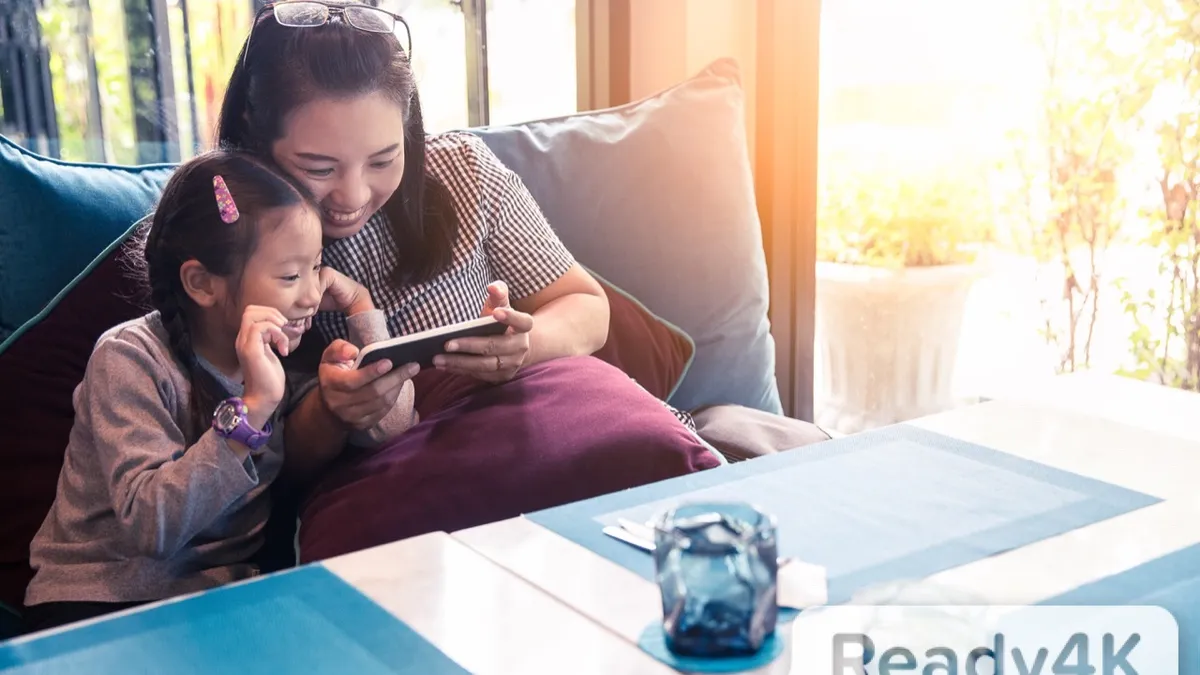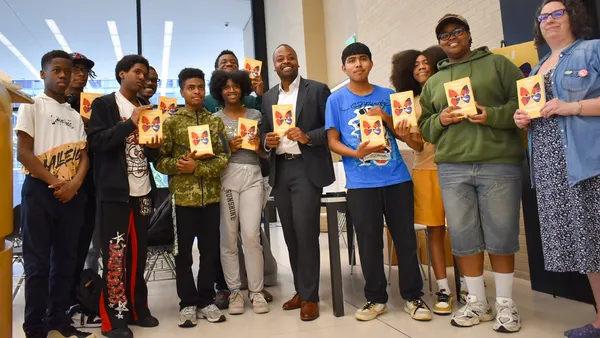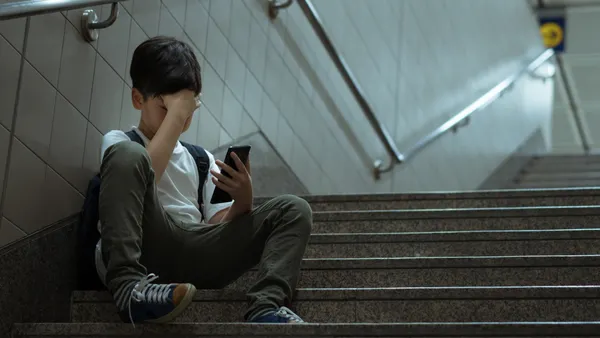Very young students falling behind during the coronavirus pandemic could face long-term achievement impacts. But Tennessee is turning to texting to keep these early learners on track.
Since the Tennessee Department of Education rolled out a curriculum-aligned Pre-K to 3 texting initiative in mid-January, there has been a "surge of interest" from families, said Lisa Coons, the department's chief of standards and materials. The program is offered on a first-come, first-served basis to districts, she said, and has been particularly helpful for rural families.
"We had a hard time getting families engaged and excited" about online learning when school buildings closed last March, Coons said. "Our current challenge is we have more families than we have spots [in the texting program]."
Creating 'culture around literacy'
The texting effort, coordinated by evidence-based family engagement curriculum provider Ready4K, is a two-year, statewide project supported by the Governor's Early Literacy Foundation, a Tennessee nonprofit focused on early literacy, according to Tennessee Department of Education spokeswoman Victoria Robinson.
While the general Ready4K program is widespread in Tennessee — 102 districts, or approximately three-fourths in the state, are participating as of Feb. 11 — the program's content can be localized for each district. Ready4K aligns its text content with the state's curriculum standards, as well as with local instruction and grade level, said Ben York, founder of Ready4K, and the content also can "amplify other key messages in the community, however big or small."
The curriculum, vetted by the Tennessee Department of Education, is texted to families that have opted to share their contact information with Ready4K — sidestepping privacy concerns — and have students enrolled in grades Pre-K to 3.
"Each week, parents receive fun facts and easy tips on how to promote their children’s development by building on existing family routines," York said in an email, "like pointing out letters on a shampoo bottle during bath time, counting the number of forks as you put them away, or making feeling faces in the mirror after you brush your teeth."
The company also includes COVID-19-friendly activities that can be done standing 6 feet apart.
Coons said the digestible nature of the texts is part of what makes them popular among parents. "It's not like delivering a whole lesson to children," she said. "It's about creating that culture around literacy at home and the activities, and thinking about learning with your parents and family."
Within one month of the Jan. 11 launch, 1.8 million text messages were been sent to parents of 163,141 students and families across 102 Tennessee districts, according to Claire Jones, spokesperson for GELF.
Accessibility and inclusion
The texts have been "easy" for parents to read and implement, said Becky Covington, director of early learning for Hamilton County Schools, one of the many Tennessee districts piloting the program. And teachers, who can access their students' Ready4K content through a dashboard, are "very positive about the program," according to Covington.
While Hamilton County is an urban district, a majority of the districts first targeted were rural, Coons said. Because the curriculum is text-based, rather than a video or an email, leaders expect it'll be easier for families facing broadband challenges to access the content.
The texts also may be an easier way to reach the families of Latino and Black children, groups that could be facing steeper learning losses due to COVID-19 school closures, York said. According to a 2010 study conducted by the Pew Research Center, a majority of American adults own a cellphone, with African Americans and Hispanics typically texting more on average than their White counterparts.
Ready4K also provides content in various languages.
Coons said she believes cellphone connectivity issues do not pose a problem to the program's success, but Covington added it's been difficult for some families to access, especially those who pay for data per minute. "That’s been a challenge in order to provide this service for them but then not put a burden on them as well," Covington said.
For those families, the texts are repurposed into printed newsletters.
And while texts are personalized by grade level, they are not individualized for students with special needs, Covington said. “Our teachers are available for parents that are receiving the texts and can provide strategies in order to make those scaffolding needs in those cases," she added.
Benefits and costs
Text-based outreach programs are not new. Besides Ready4K, they include Bright By Text, Vroom by Text, Text2LiveHealthy and Text2Learn. Other districts around the U.S., like New York City Department of Education and San Francisco Unified School District, have been using the Ready4K program during the COVID-19 school closures.
A 2018 study conducted by three Stanford University researchers and Ready4K's York showed personalized and differentiated texting-based interventions could lead to learning gains for kindergarten students.
Tennessee is offering the program to its districts free of charge, covered by GELF funding and the state department of education. York said if a district offered the program, the cost would be $5.99 per child per year, which includes curriculum designed to help buffer the effects of summer learning loss.
Covington said it is too early to know the academic benefits of the texting program, but Coons added Tennessee hopes to expand the program to serve all families.
Covington plans to collect data around student achievement in her district by comparing benchmark data from mid-year January assessments with end-of-year benchmark data. "I hope that the data will show that this has been a positive support and resource for families and continue into next year," she said.













